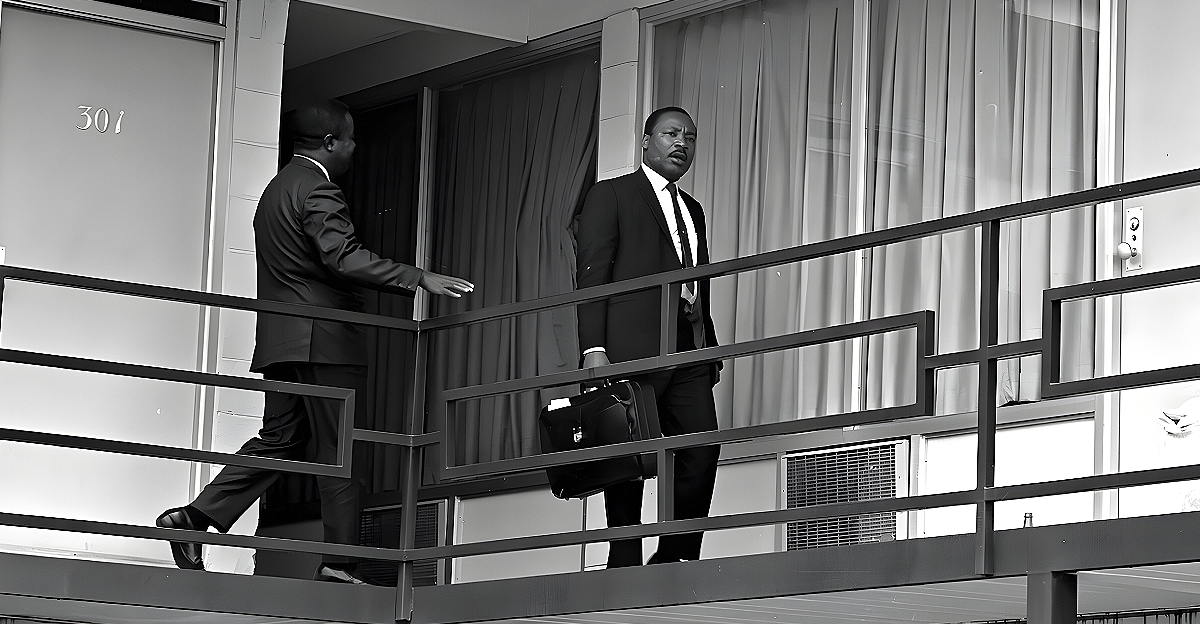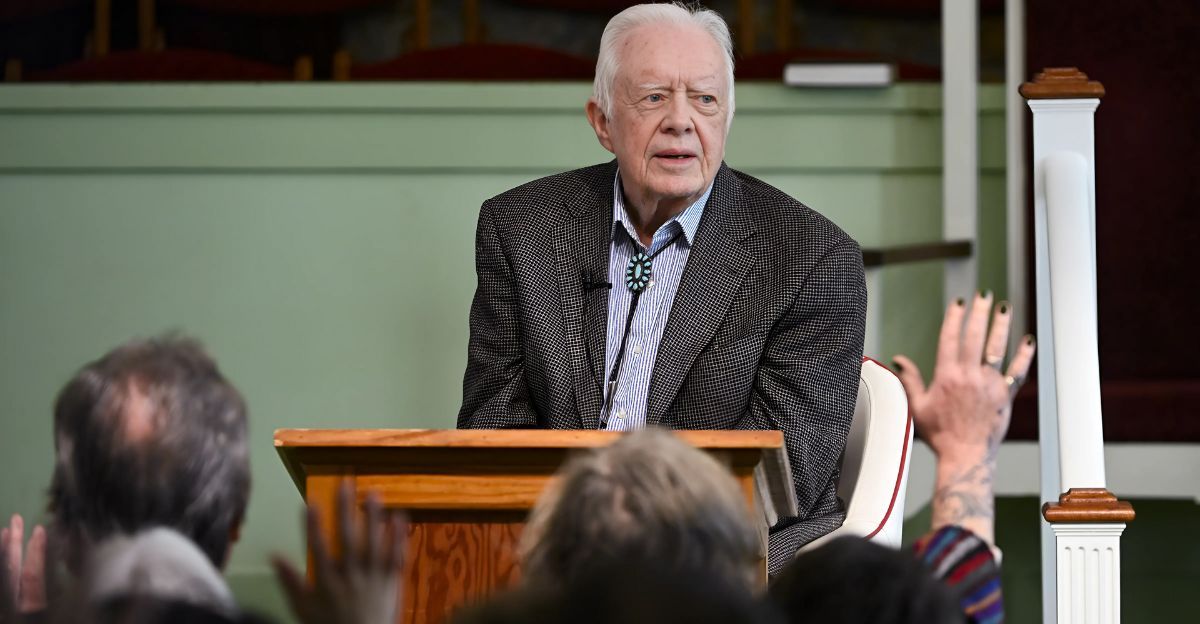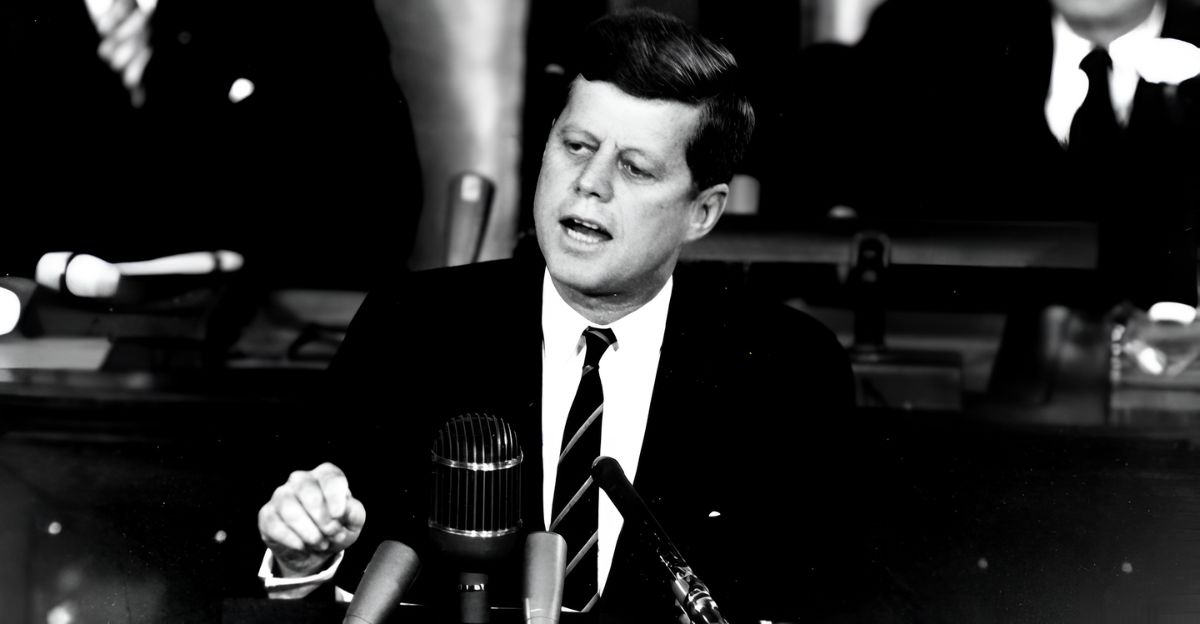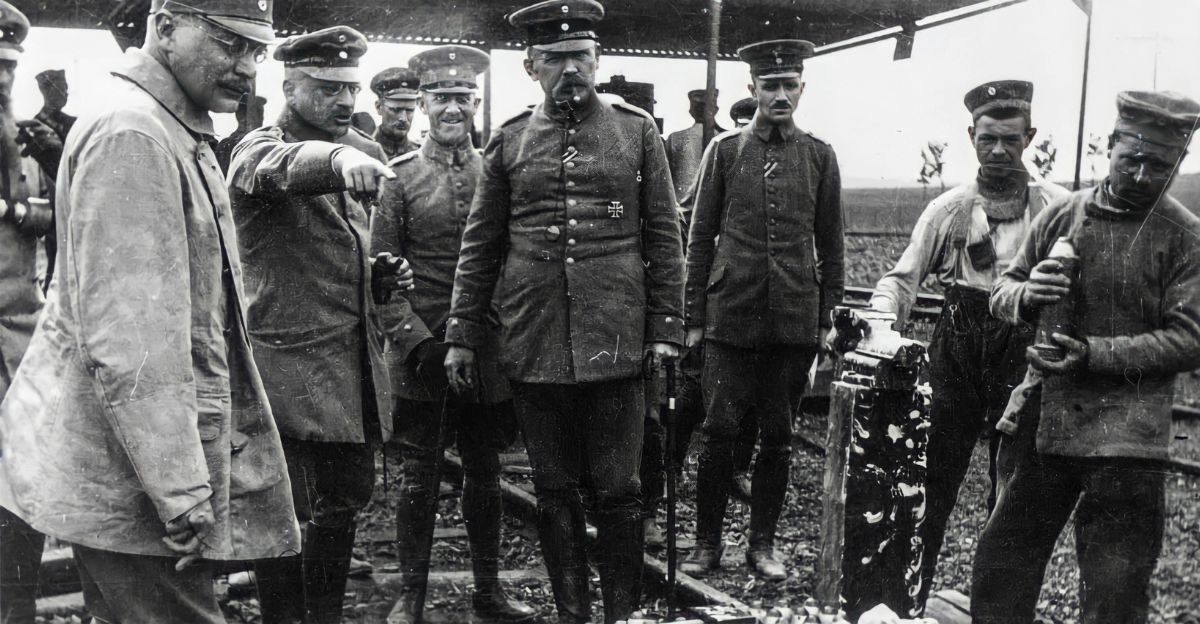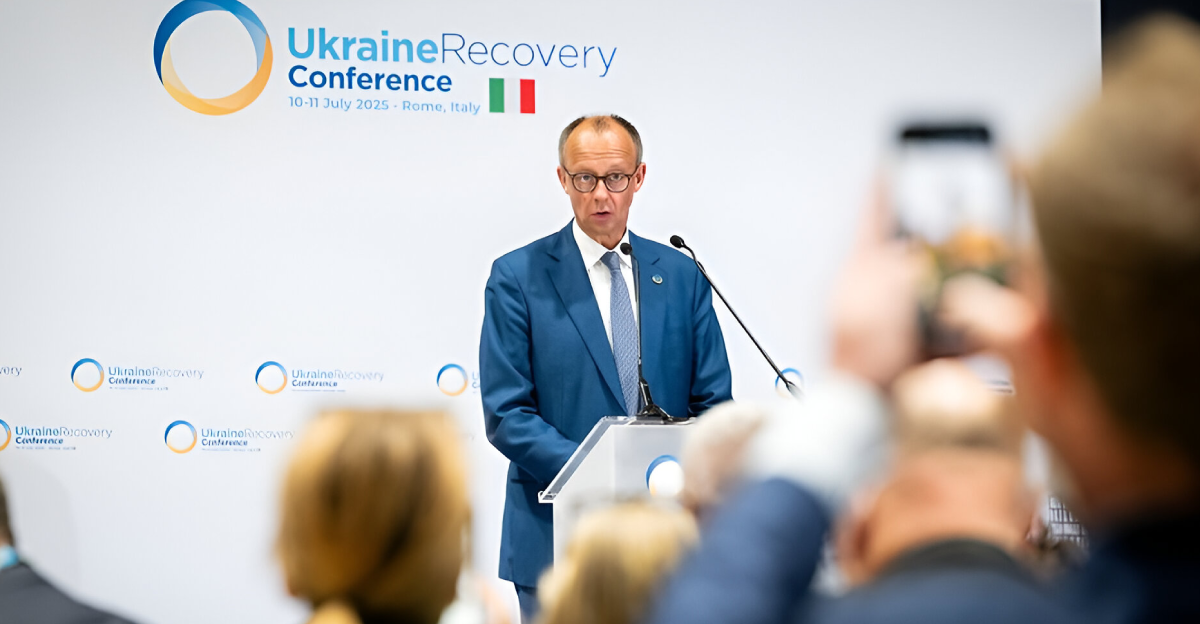
German Chancellor Friedrich Merz delivered an unprecedented financial ultimatum to Moscow during the Ukraine Recovery Conference in Rome, demanding that Russia pay approximately €500 billion in war damages to Ukraine before being allowed access to its frozen international assets. Announced on July 10, 2025, this stark demand represents Europe’s hardest line yet on holding Russia financially accountable for its invasion.
With over €300 billion in Russian sovereign assets already frozen across European institutions, Merz’s declaration effectively transforms these holdings from mere sanctions into leverage for massive war reparations.
Financial Stranglehold
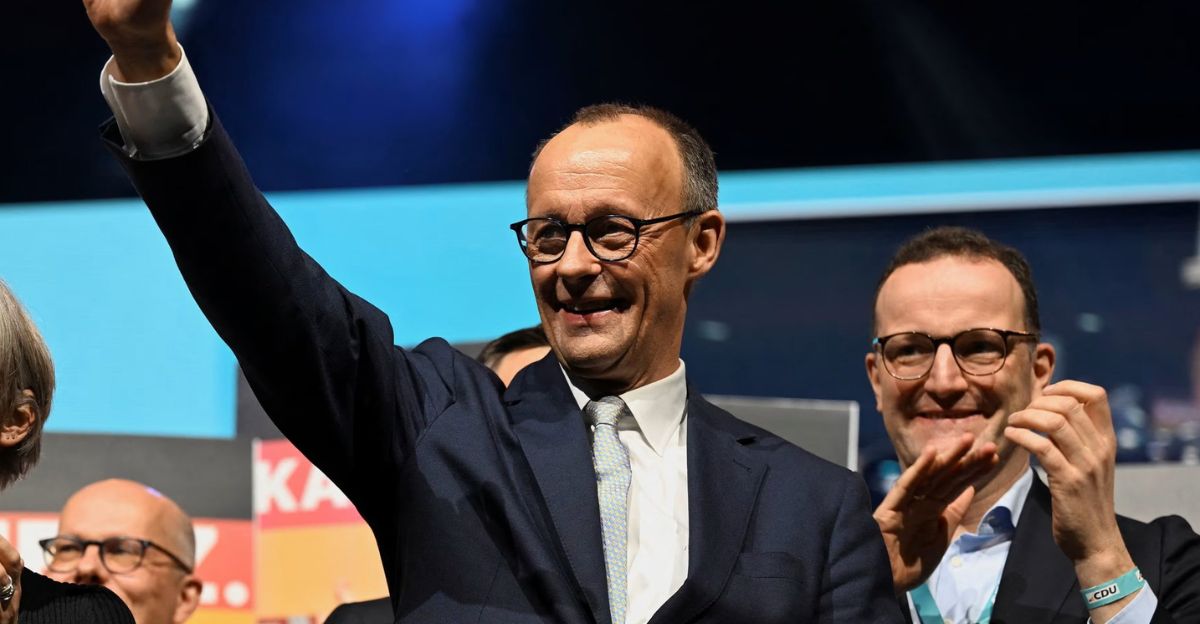
Merz’s €500 billion compensation figure exceeds Russia’s total frozen reserve assets by nearly 70%, creating an almost impossible financial barrier to Moscow’s rehabilitation. In practical terms, Germany’s demand means Russia cannot regain access to its €300 billion in blocked central bank reserves until it pays significantly more – an amount that doesn’t even exist in those frozen accounts.
This financial stranglehold marks a seismic shift from Europe’s earlier reluctance to directly confiscate sovereign assets.
Historical Context
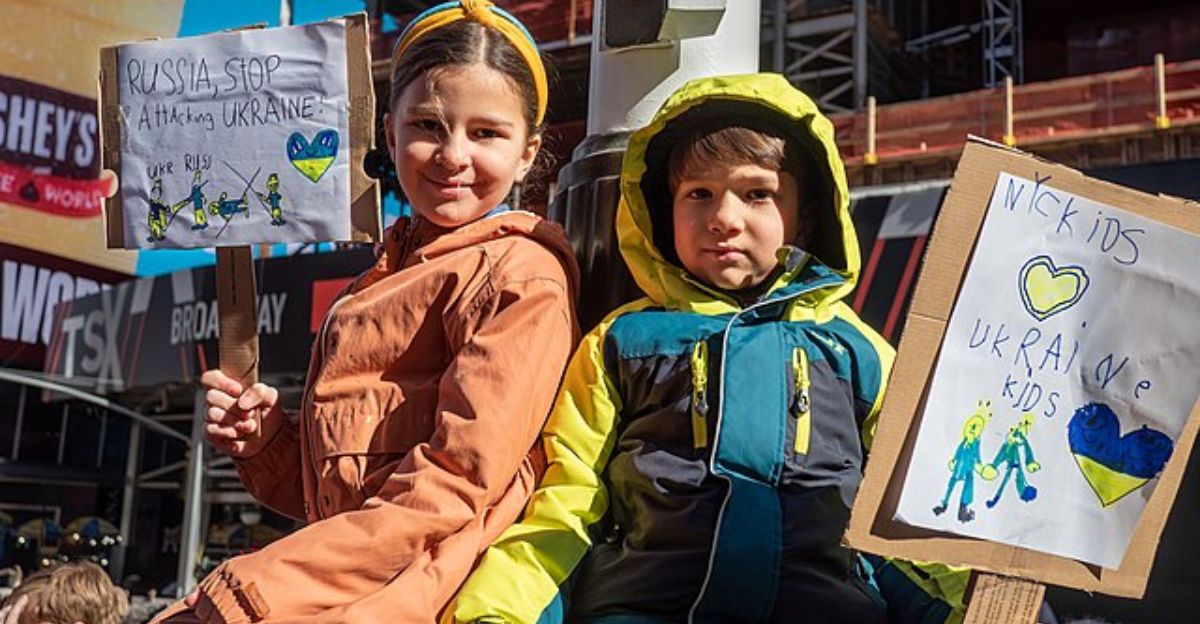
Historically, world powers have avoided confiscating a sovereign nation’s assets due to legal complexities and fears of destabilizing the international financial order. Past conflicts saw reparations negotiated after hostilities ended, not imposed mid-war. Russia’s 2022 invasion of Ukraine, however, triggered an unprecedented response: Western nations froze hundreds of billions in Russian central bank reserves – the largest such asset freeze in modern history.
Belgium’s Euroclear clearing house alone holds about €183 billion of these assets, generating billions in interest annually. This bold break with diplomatic precedent reflects a grim reality: traditional post-war justice mechanisms cannot address the scale of destruction Russia continues to inflict on Ukraine.
Mounting Pressure
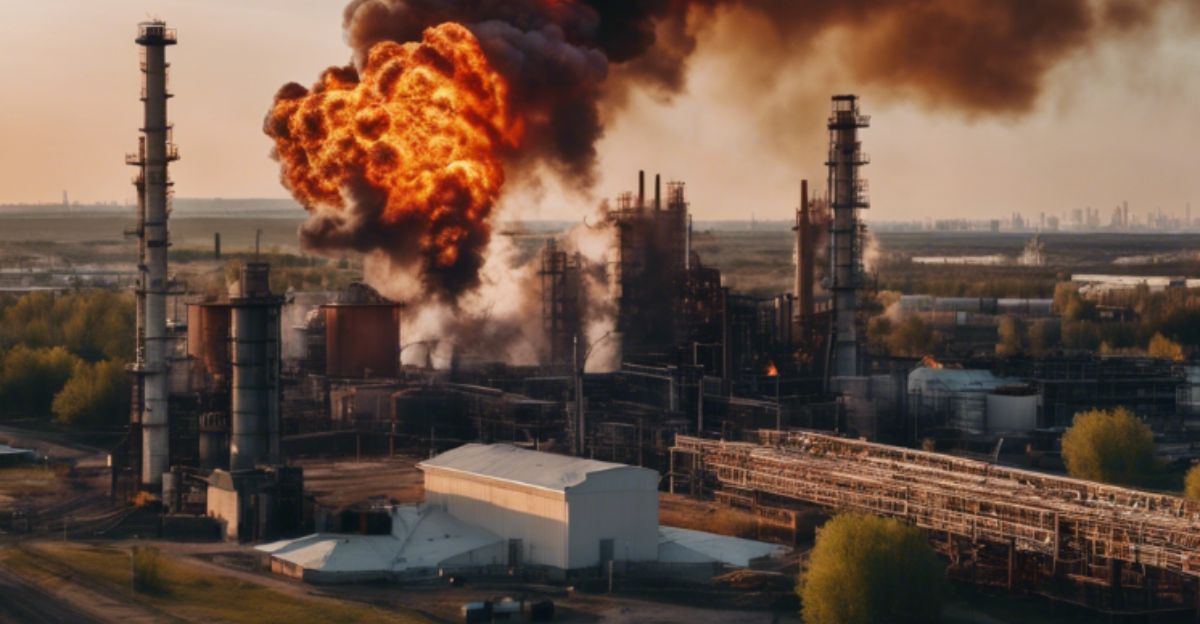
Russia’s systematic targeting of civilian infrastructure has only intensified Europe’s resolve to exact financial consequences beyond traditional sanctions. Missile and drone attacks still rain down daily on Ukrainian cities; recent overnight barrages saw 400+ projectiles launched in a single night. The devastation now includes roughly 13% of Ukraine’s entire housing stock damaged or destroyed – affecting 2.5 million families – while damage to energy infrastructure has soared by 70% in recent assessments.
Such relentless destruction is hardening attitudes in Berlin and Brussels. German officials openly admit that merely freezing assets has not deterred Moscow’s aggression.
Conference Revelation
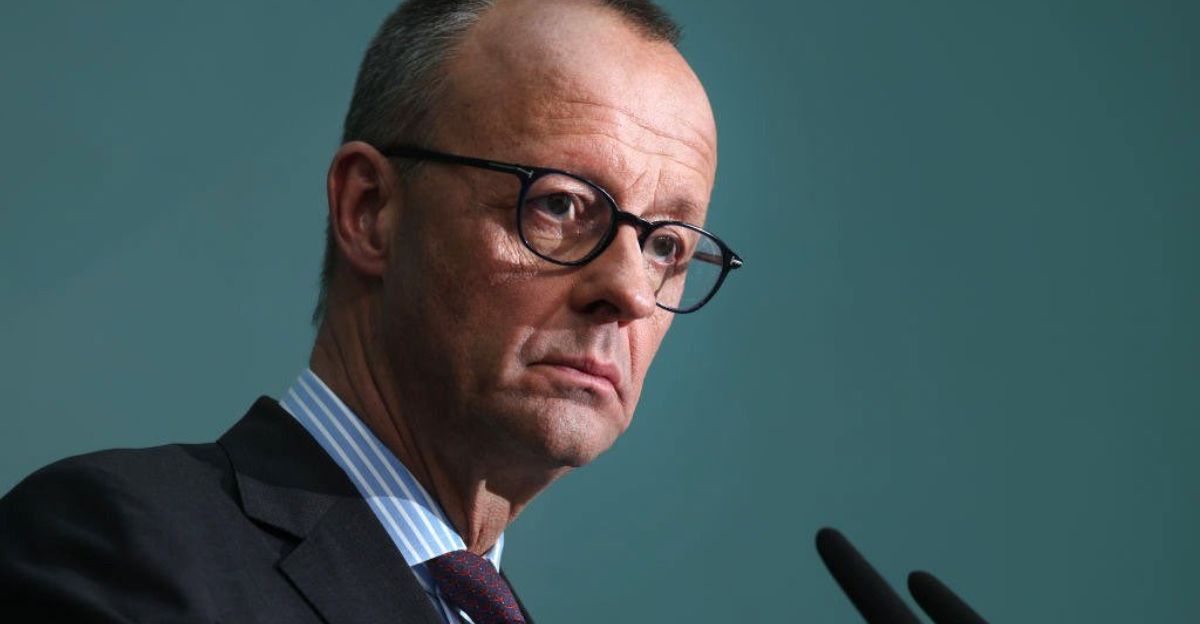
Here’s where the policy shift becomes explicit. At the Rome conference, Chancellor Merz stood before representatives from over 100 nations – including Ukraine’s President Volodymyr Zelenskyy – and declared, “Russia must pay for this damage.” He stressed that *“until this happens, Russia should not and will not have access to its frozen assets,” drawing loud applause from the gathered delegates.
This revelation, delivered on July 10 with Russian missiles raining down on Ukrainian cities in the background, marked Germany’s most assertive stance to date on making the aggressor foot the bill.
Regional Impact
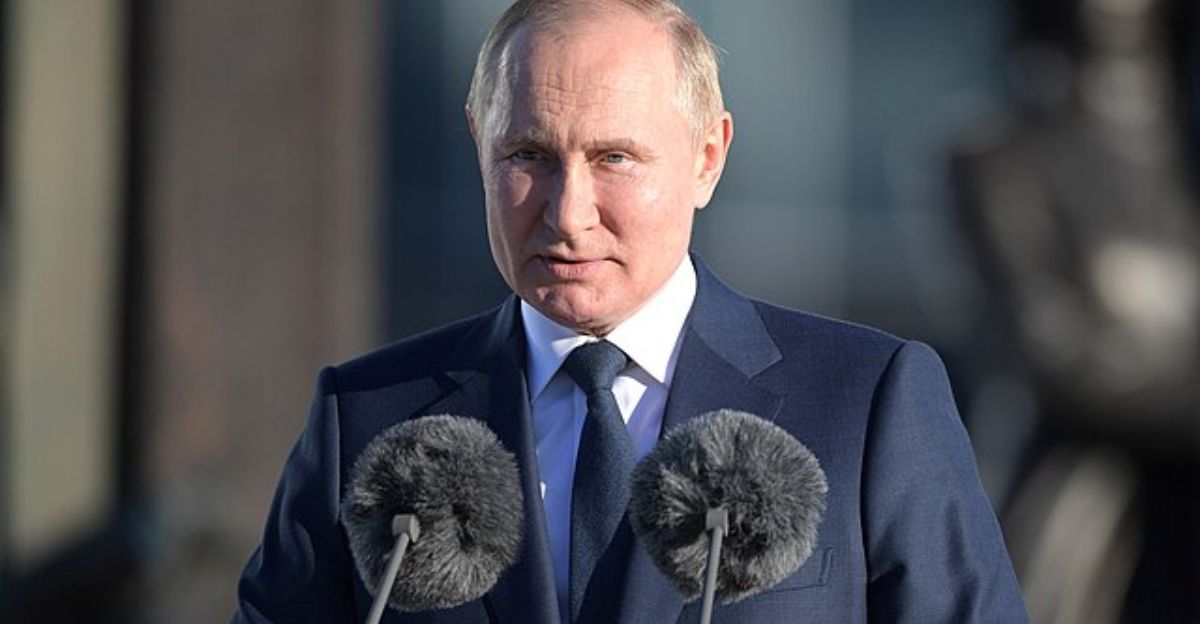
European reactions to Germany’s hard line split along predictable East–West fault lines. Eastern European allies immediately endorsed Merz’s stance, seeing it as vindication of their long-standing calls to confiscate Russian funds for Ukraine. Poland, the Baltic states, and Nordic countries argue that legal niceties pale beside Ukraine’s existential crisis. As Polish statesman Radek Sikorski put it bluntly, “Putin doesn’t think we have the fortitude to take [his assets]. So far, we’ve proven him right.” By contrast, some Western European leaders remained cautious.
Financial hubs like Brussels and Paris worry that seizing sovereign assets outright could set perilous precedents for global markets.
Human Stories
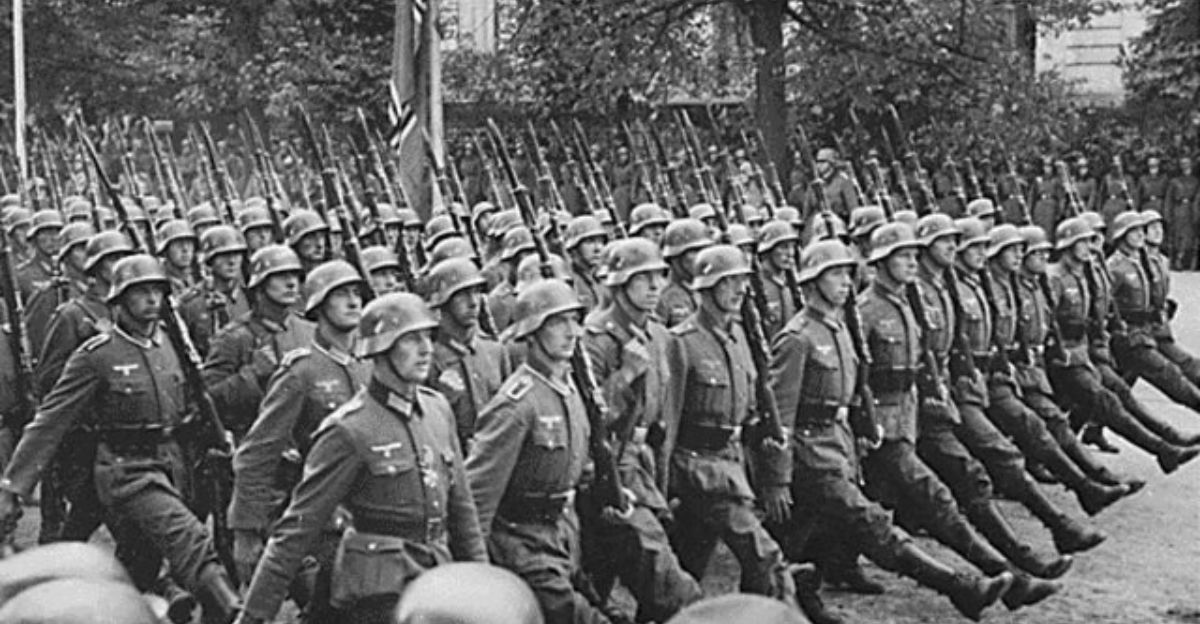
For ordinary Ukrainians living with bombed-out homes and daily blackouts, these high-level legal debates mean little – they need help now. Families huddling in damaged apartments cannot wait for diplomatic niceties while their lives remain shattered by ongoing Russian attacks. Volodymyr Yukhymchuk, 59, whose house in Irpin was destroyed by a Russian rocket, bitterly noted that “so many [people] survived but did not get any help and had no place to live” after the bombardments.
Each passing day without full reconstruction aid, he suggested, is another day of lost dignity and hope. Similar pleas echo across Ukraine’s war-torn communities. “Every day we wait is another day without home, without hope,” one displaced resident told conference reporters.
Market Response
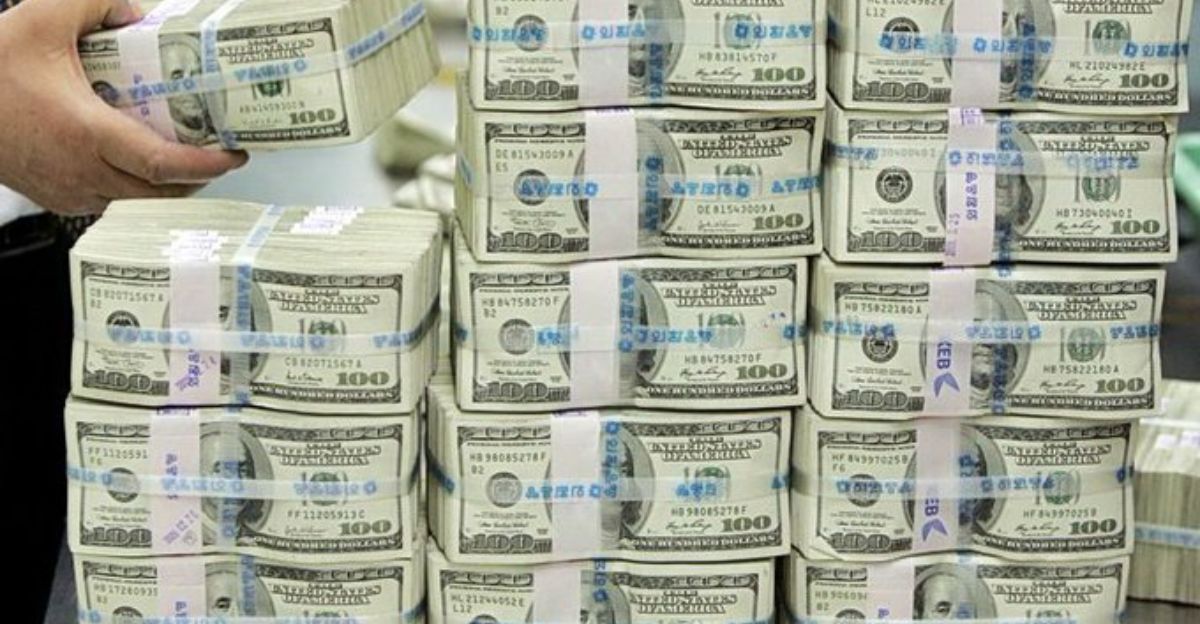
Despite the boldness of Germany’s ultimatum, financial markets reacted with striking calm – a sign that investors doubt immediate asset seizures are on the horizon. European banking stocks barely budged following Merz’s announcement, suggesting traders assume lengthy legal fights will precede any confiscation of Russian funds. The euro’s exchange rate held steady against the dollar, indicating little fear (for now) of systemic fallout from Europe’s harder stance.
Some analysts even noted a touch of cynicism in the markets: after nearly three years of war, they’ve grown accustomed to tough rhetoric that often yields slowly to legal reality. Still, experts caution that any unilateral European move to repurpose Russia’s reserves without broad international backing could unsettle global finance in the longer term.
International Reactions
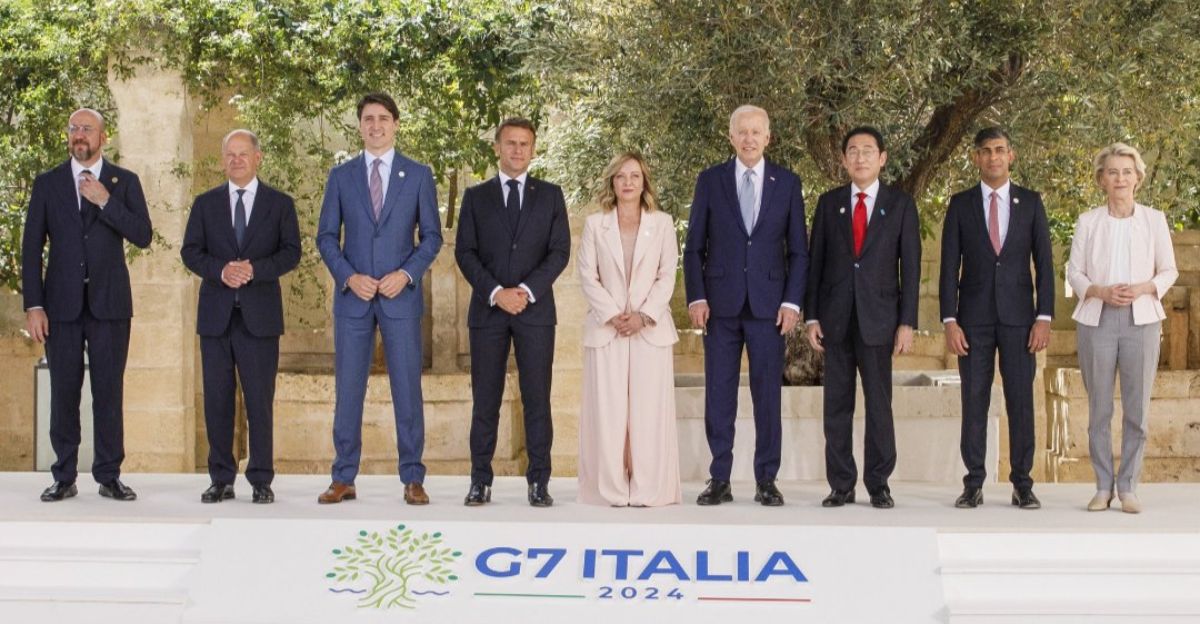
International responses to Germany’s €500B demand have been mixed and muted. The United States, focused on fragile ceasefire negotiations, maintained a cautious silence on Merz’s specific figure – even as it reiterates support for Ukraine’s recovery through existing G7 programs. China and India, major buyers of discounted Russian oil, remain officially neutral but privately uneasy; Beijing and New Delhi worry that legitimizing sovereign asset seizures could one day be turned against them.
Within NATO, allies split much as Europe did: Eastern members applauded Berlin’s leadership in pushing the envelope, while Western European governments urged a more measured approach. Notably, in upcoming G7 meetings, leaders are expected to debate coordinating any future use of frozen Russian assets to avoid fragmentation – a direct response to Germany’s go-it-alone stance in Rome.
Diplomatic Crossroads

Germany’s €500B ultimatum now places Europe at a diplomatic crossroads: Will the drive to deliver justice for Ukraine outweigh concerns about upending global financial stability? In the coming months, European unity will be tested as never before. Officials acknowledge that pushing ahead with asset confiscation would require new laws, possibly EU-wide or G7-wide agreements, to withstand expected legal challenges.

